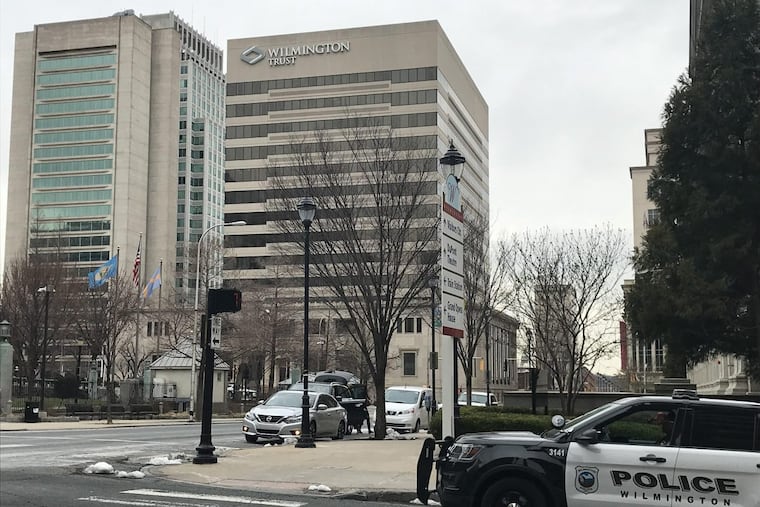Wilmington Trust bank bosses’ criminal convictions reversed on appeal: Read the decision here
A federal appeals court reversed convictions of the bank's last President Robert V.A. Harra and three top aides for lying to investors and regulators, but ordered a new trial for securities fraud.

The federal appeals court in Philadelphia has reversed criminal convictions of former Wilmington Trust president Robert V.A. Harra and three top executives on charges of lying to regulators and investors, and ordered a retrial on charges of securities fraud and conspiracy.
The four had been sentenced to prison in 2018 by a federal judge in Delaware for failing to come clean about bad loans to big developers before the financial collapse of the $12 billion bank in 2010, but had been free on appeal since.
Seven years after charges were filed, a jury convicted the four of hiding more than $300 million of bad real estate loans from bank examiners and the U.S. Securities and Exchange Commission, leading to big losses for investors and the taxpayers.
The U.S. Treasury had bailed out the bank as part of recovery efforts after the 2008 national economic skid. In the end, more than 700 workers lost their jobs when it was sold at a deep discount to M&T Bank to prevent it from failing.
The bankers’ lawyers argued they acted legally, and at least some regulators approved of the bank routinely extending unpaid loans for big developers, not listing them as delinquent. The defendants said the bank could have recovered as property markets recovered, given enough time.
The three-member appeals court tossed the convictions of the defendants on charges of making false statements.
“The government here produced insufficient evidence from which a rational jury could find defendants’ statements false,” because the rules are “ambiguous,” wrote U.S. Judge Cheryl Ann Krause in an opinion for the appeals panel.
The panel ordered them acquitted on that charge, saying that the judge had erred in his instructions to the jury.
But while also setting aside the defendants’ convictions for conspiracy and securities fraud, the judge permitted prosecutors to seek a new trial on those charges. She noted prosecutors had separately based these charges on a second theory — that the bank had wrongly “extended” a long list of bad loans and “pretended” they were still good — and the bankers could again face trial on those accusations.
“I am disappointed with this result,“ said David C. Weiss, U.S. attorney for Delaware, in a statement. He said his office had not yet decided whether to retry the defendants.
The four senior Wilmington Trust officials were among only a few bankers convicted of crimes related to the financial collapse that forced a spate of job-destroying bank mergers and takeovers in the late 2000s during what is called the Great Recession.
It was not the only bank, or the largest, to face insolvency. But prosecutors argued Wilmington Trust officials crossed a line in defending collateral on large, shaky loans that had lost much of their value and in sticking to that script far too long, causing worse damage for investors who believed them.
Harra was sentenced to six years in prison. David Gibson, the bank’s former chief financial officer, was given the same sentence, while former chief credit officer William North faced 4 1/2 years and controller Kevyn Rakowski three years. None served any time.
Harra is “very happy, and incredibly relieved,” said lawyer Michael P. Kelly, chairman emeritus at McCarter & English LLP, who defended Harra. “I never understood why this case was brought.”
Kelly argued that the former Office of Thrift Supervision, one of the bank’s regulators, had “agreed with the bank’s reporting practices,” and that prosecutors had blamed other bank problems on a relatively small number of loans.
Harra “never dreamt of breaking the law,” Kelly added, but was subject to a “nightmare” prosecution. The lawyer added that Harra, as well as the other defendants, reported to the bank’s chief executive, Theodore Cecala, who was never charged.
Rakowsky “is no doubt gratified, but the personal toll on her has been incalculable,” added her lawyer, Henry Klingeman.